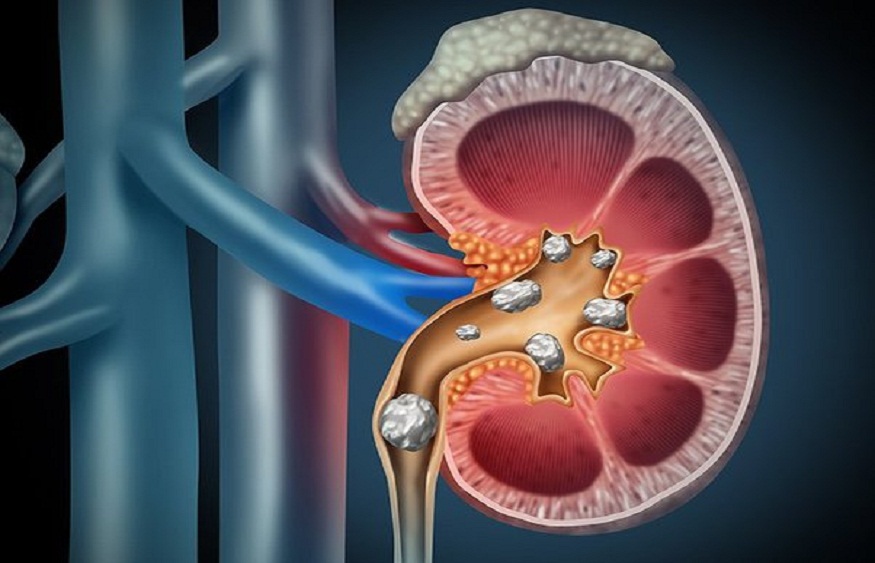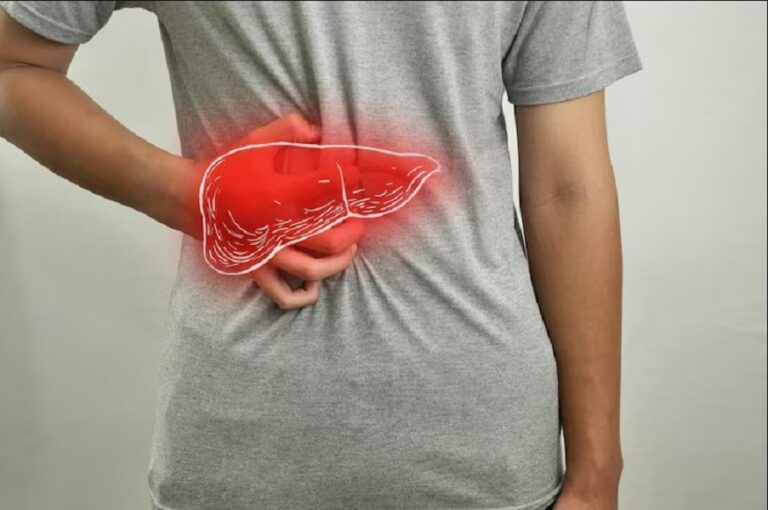Kidney stones, medically known as renal calculi, are hard deposits of minerals and salts that form inside the kidneys. This condition has been a significant health concern across the globe, affecting approximately 12% of the world’s population at some point in their lives. From an Ayurvedic perspective, kidney stones are known as “Vrukka Ashmari,” with “Vrukka” referring to kidneys and “Ashmari” to stone-like formations. Ayurveda offers a holistic approach to both the prevention and treatment of kidney stones, focusing on balancing the body’s natural energies (doshas) and using herbal remedies like Ayurvedic tablets for kidney stones and Ayurvedic syrup for kidney stones.
Understanding the Causes of Kidney Stones
The formation of kidney stones can be attributed to a number of factors. From an Ayurvedic standpoint, the imbalance of the three doshas—Vata, Pitta, and Kapha—plays a crucial role. When Pitta dosha is aggravated, it leads to an increase in acidic content and dehydration in the body, which can result in the formation of kidney stones.
Modern medicine identifies the following causes for kidney stone formation:
Dehydration: Insufficient water intake is a leading cause of kidney stones. Dehydration causes urine to become concentrated, allowing minerals to crystallize and bind together. A stone tablet can be used to cure the condition effectively.
Diet: High intake of oxalate-rich foods (like spinach and nuts), salt, and animal protein can lead to stone formation.
Genetics: Individuals who have a history of kidney stones in their bloodline have a heightened risk as well.
Obesity: Excess weight can alter the body’s chemical balance, increasing the risk of kidney stones. This is one of the main causes why it is essential to keep one’s weight in check.
Medical Conditions: Conditions like hyperparathyroidism, urinary tract infections, and certain digestive diseases can lead to the formation of kidney stones.
In Ayurveda, it is believed that poor dietary habits, including excessive consumption of spicy, salty, and sour foods, as well as a sedentary lifestyle, can aggravate the Pitta dosha, leading to the formation of kidney stones. To counteract this, Ayurvedic practices emphasize maintaining a balanced diet and lifestyle, and the use of an Ayurvedic stone if you are affected by the condition.
Symptoms of Kidney Stones
Recognizing the symptoms of kidney stones early on is crucial for timely treatment. Common symptoms include:
Severe Pain: The most prominent symptom is searing pain, often starting in the back or side and radiating towards the lower abdomen and groin. This pain is referred to as renal colic.
Blood in Urine: The presence of blood in urine (hematuria) can be a sign of kidney stones, as the stones may cause irritation in the urinary tract.
Frequent Urination: A constant urge to urinate, often with small amounts of urine, can indicate a stone moving down the urinary tract.
Nausea and Vomiting: The pain caused by kidney stones can lead to nausea and vomiting.
Cloudy or Foul-Smelling Urine: This can occur due to an infection or the presence of waste products in the urine.
Fever and Chills: If there is an infection in the urinary tract, it may result in fever and chills.
Ayurveda addresses these symptoms by focusing on balancing the aggravated doshas and using specific herbal remedies to ease discomfort and aid in the passage of stones.
Types of Kidney Stones
The different types of kidney stones can be categorized on the basis of their composition:
Calcium Stones: These are the most common type, formed when there is an excess of calcium in the urine. They often combine with oxalate or phosphate.
Struvite Stones: These are less common and are typically associated with urinary tract infections. Their rate of growth is quite fast.
Uric Acid Stones: These form when the urine is too acidic, often due to a diet high in purines, which are found in animal proteins.
Cystine Stones: These are rare and usually occur in individuals with a genetic disorder called cystinuria, which causes the kidneys to excrete excessive amounts of certain amino acids.
In Ayurveda, the approach to treating these different types of stones may vary based on the predominant dosha involved. For instance, Pitta-related stones may be managed by cooling herbs, while Vata-related stones may require treatments to strengthen and balance the nervous system.
Ayurvedic Approach to Treating Kidney Stones
Ayurveda offers a comprehensive approach to treating kidney stones, focusing on natural remedies like stone tablets and Ayurvedic syrup for kidney stones, dietary modifications, and lifestyle changes. The aim is to dissolve the stones, alleviate symptoms, and prevent recurrence.
Ayurvedic Herbs and Formulations
Ayurvedic treatment involves using various herbs and formulations like stone tablets and Ayurvedic syrup for kidney stones that are believed to break down stones and facilitate their removal from the body.
Punarnava (Boerhaavia diffuse): Known for its diuretic and anti-inflammatory properties, Punarnava helps in reducing swelling and promoting urine flow, which aids in flushing out kidney stones.
Gokshura (Tribulus terrestris): This herb is widely used in Ayurveda for urinary disorders. It helps in breaking down stones and has a cooling effect on the urinary tract.
Varun (Crataeva nurvala): Varun is another herb that helps in dissolving kidney stones and reducing the size of stones so they can pass more easily.
Ayurvedic Syrup for Kidney Stone: Herbal syrups are often used in Ayurveda to treat kidney stones. These syrups combine multiple herbs and provide a soothing effect while promoting the passage of stones through urine.
Ayurvedic Tablet for Kidney Stone
Ayurvedic tablet for kidney stones are formulated using a blend of herbs that target the root causes of stone formation. These stone tablets help in dissolving stones, reducing pain, and preventing recurrence. Regular use under the guidance of an Ayurvedic practitioner can be effective in managing and preventing kidney stones.
Dietary Recommendations
In Ayurveda, diet plays a crucial role in managing kidney stones. The following dietary guidelines are often recommended:
Increase Fluid Intake: When it comes to preventing kidney stones naturally, this is something that has a massive role to play. Herbal teas and coconut water can also be beneficial.
Avoid High Oxalate Foods: Foods like spinach, nuts, and chocolate should be limited.
Reduce Sodium Intake: Excessive salt can increase the risk of kidney stones.
Incorporate Alkalizing Foods: Foods like bananas, cucumbers, and melons help in reducing acidity in the body, thus preventing stone formation.
Ayurvedic Diet: An Ayurvedic diet emphasizes the consumption of fresh fruits, vegetables, whole grains, and legumes. It avoids processed foods, red meat, and excess dairy, which can contribute to stone formation.
Lifestyle Modifications
Lifestyle changes are an integral part of Ayurvedic treatment for kidney stones. Regular exercise, yoga, and stress management techniques are recommended to maintain overall health and balance the doshas. Practising pranayama (breathing exercises) can help in reducing stress and improve kidney function.
Prevention of Kidney Stones with Ayurveda
Preventing kidney stones is a key focus in Ayurveda. Regular detoxification, maintaining a balanced diet, and using herbal supplements like Ayurvedic tablet for kidney stones can help prevent recurrence. Ayurvedic practitioners also emphasize the importance of regular monitoring of kidney health and making necessary lifestyle adjustments.
Conclusion
Kidney stones are a common and painful condition that can significantly impact quality of life. Ayurveda offers a holistic approach to managing kidney stones, focusing on balancing the body’s doshas, using natural remedies like Ayurvedic syrup for kidney stones, and making dietary and lifestyle modifications. By adopting these Ayurvedic principles, individuals can not only treat existing kidney stones but also prevent future occurrences, ensuring better kidney health and overall well-being.












+ There are no comments
Add yours